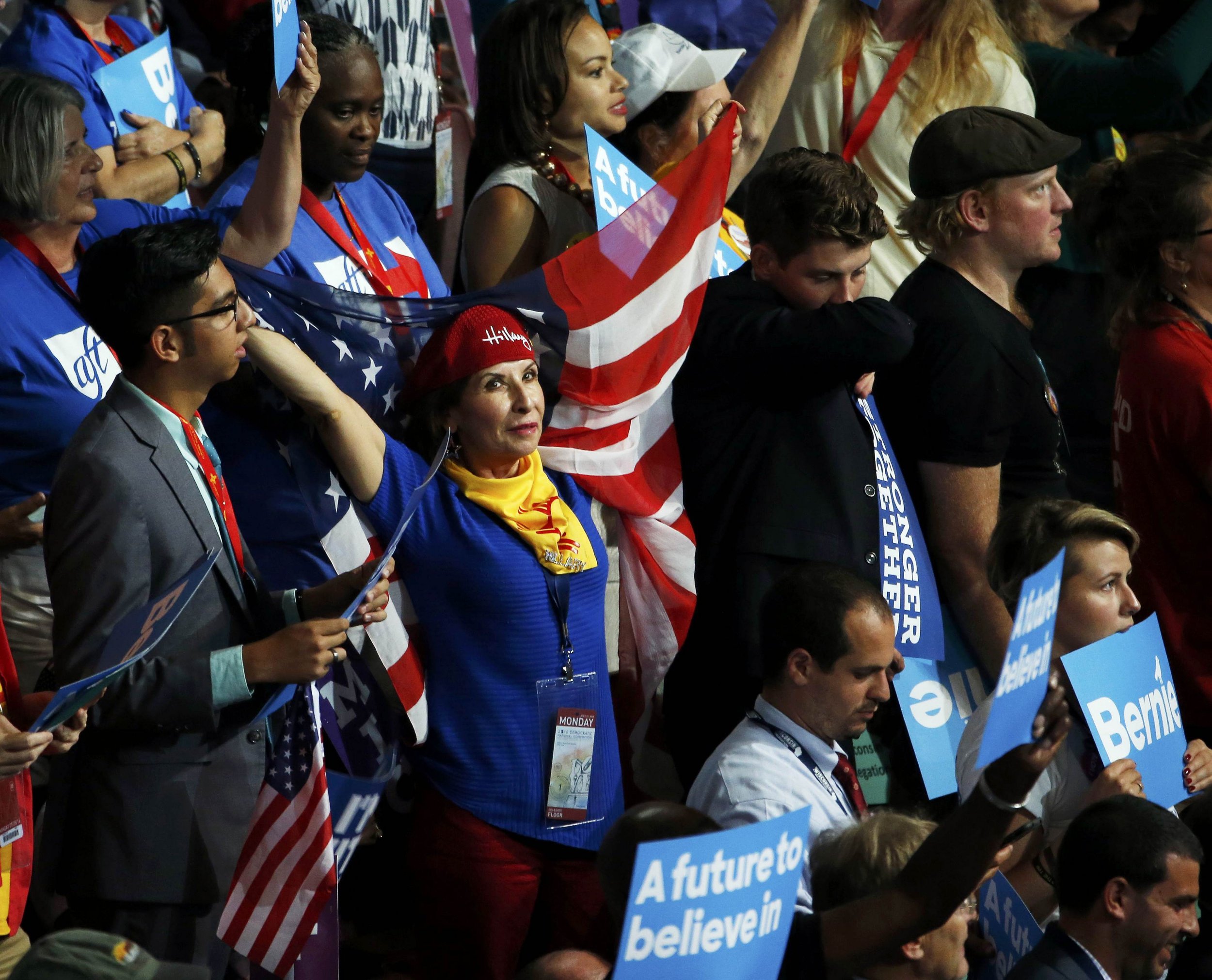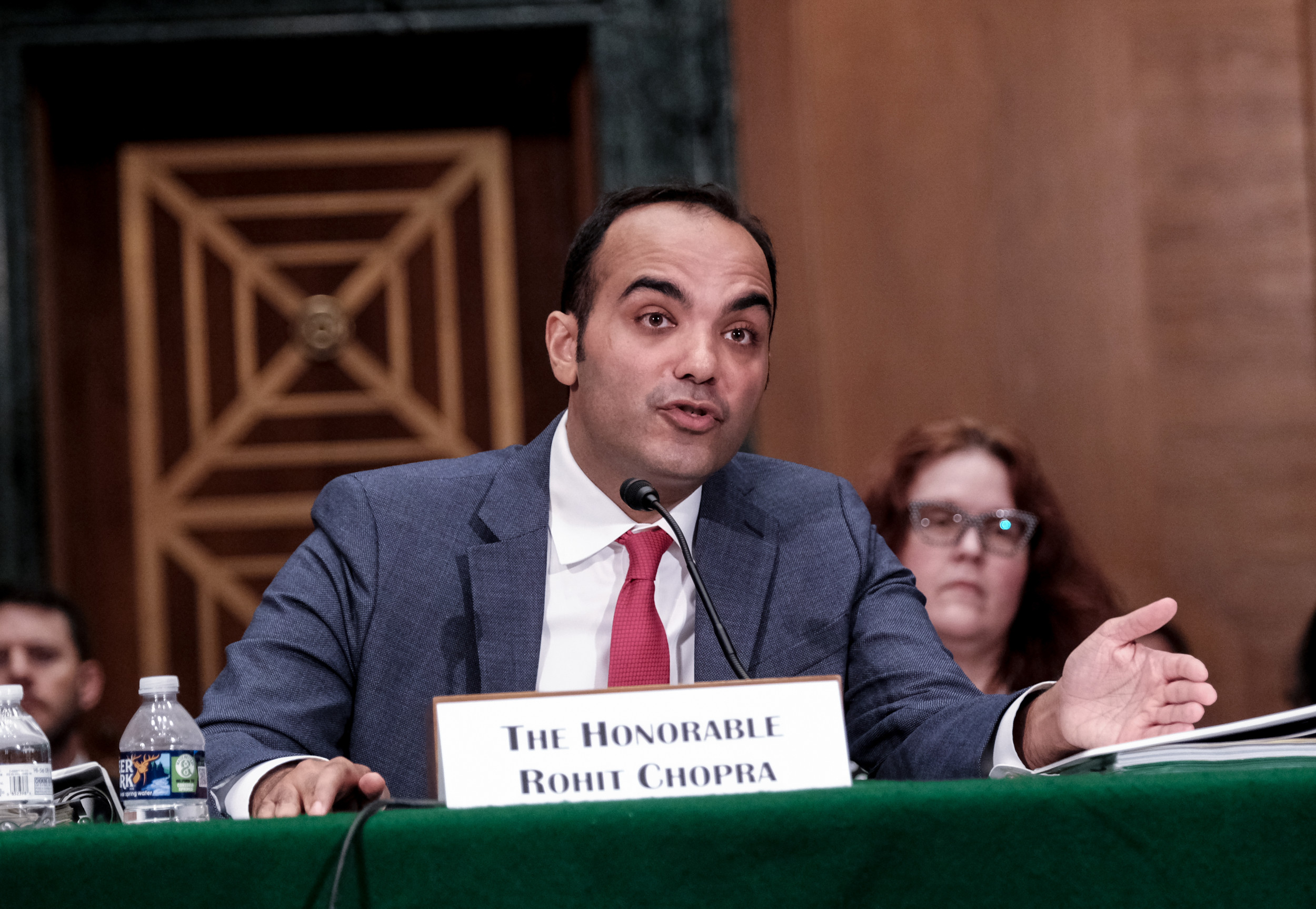
Updated | "To the 'Bernie or bust' people," Sarah Silverman said, "you're being ridiculous."
The comedian, a Bernie Sanders supporter, had taken the stage at the Democratic National Convention. She and Senator Al Franken, the former comedian and longstanding Hillary Clinton booster, were doing a shtick about bringing the party together. As the chants for Sanders rose, a frustrated Silverman said: "At least we can fix this in post," a reference to post-production on films, when a bevy of mistakes are edited out.
By Thursday, the divisions on display during the first day of the Democratic National Convention will have vanished. Clinton will be the first woman to be nominated for president by a major party in the U.S. (Hey, America, we're catching up to Liberia!) She'll probably get some help in the polls, and there will be a balloon drop to erase the memories of Monday, when the Democratic National Committee chairwoman, Debbie Wasserman Schultz, was booed at a breakfast held by her home state delegation. By the early afternoon, the congresswoman had given up the gavel to open the convention. WikiLeaks had exposed the internal DNC emails (likely thanks to Russian state hackers), which made clear that the Democratic Party, under her direction, seemed to favor Clinton.
A party's leader is rarely driven out of power on the first day of its quadrennial convention, but this is the most bizarre year ever, so why not throw in Julian Assange and Vladimir Putin to make it even weirder.
The question, however, is whether the Democratic Party is irrevocably divided—and the answer is no. It's riven, yes, but just as Republicans largely came together in Cleveland, Democrats will do the same, and likely to a far greater extent. The partisanship of the present leads to more party unity. When you think the other party's nominee is Lucifer, you don't have the luxury of dithering. And so Sanders supporters will largely acquiesce, maybe not this week or the next, but soon. Besides, the Democratic convention didn't see the same boycott of elected officials that happened in Cleveland, where all the Bushes, John Kasich, the Republican Ohio governor and Mitt Romney, the previous GOP nominee, stayed away. By October, the number of persuadable voters will be minuscule. It'll be a race that's all about getting your base out to vote.
Democrats may have been jarred by the catcalls and boos that marked the first day. (Cory Booker, the New Jersey senator, saw his speech interrupted by Black Lives Matter protesters.) But while this may be the most divisive convention in a generation, it's nothing like the one in 1968; such comparisons are as common as they are overblown.
The Sanders folks may feel excluded, but in '68, Vice President Hubert Humphrey received the nomination even though he had not won a single primary that year. He ran only in caucuses that were then the province of party leaders and didn't involve regular voters. Most on the left had supported two anti–Vietnam War candidates, Senator Eugene McCarthy and Senator Robert Kennedy, the latter of whom was assassinated a few weeks before the convention. But a pro-war plank passed because the convention really was rigged for Humphrey. What ensued afterward was even more dramatic: police riots, tear gas and assaults on reporters. The 1968 Democratic National Convention was so raucous that Senator Abraham Ribicoff stood onstage and denounced the "Gestapo tactics" of the Chicago police, which quickly got him involved in a shouting match with the city's mayor, Richard Daley. Compared with that, it seems benign that Elizabeth Warren had to speak over a few chants of "We trusted you."

As the last speaker of the night, Sanders went a long way toward unifying the party. He offered a passionate defense of Clinton, noting that she had come to embrace his tuition-free approach to public universities. He used the fear of a Trump-appointed Supreme Court and the dismantling of Obamacare to rally the crowd. At one point, he said of Clinton: "She knows Medicare should negotiate drug prices with the pharmaceutical companies." Trump has actually embraced that liberal mainstay, but no matter—Bernie had momentum.
"I have known Hillary Clinton for more than 25 years," he said. "Hillary Clinton will make an outstanding president, and I am proud to stand with her tonight."
Those were the words Democrats needed to hear, and they got them.
This story has been updated to include that Mitt Romney, the GOP's previous nominee, stayed away from the Republican National Convention in Cleveland this year.
Uncommon Knowledge
Newsweek is committed to challenging conventional wisdom and finding connections in the search for common ground.
Newsweek is committed to challenging conventional wisdom and finding connections in the search for common ground.
About the writer
Matthew Cooper has worked for some of America's most prestigious magazines including Time, The New Republic, National Journal, U.S. News ... Read more





